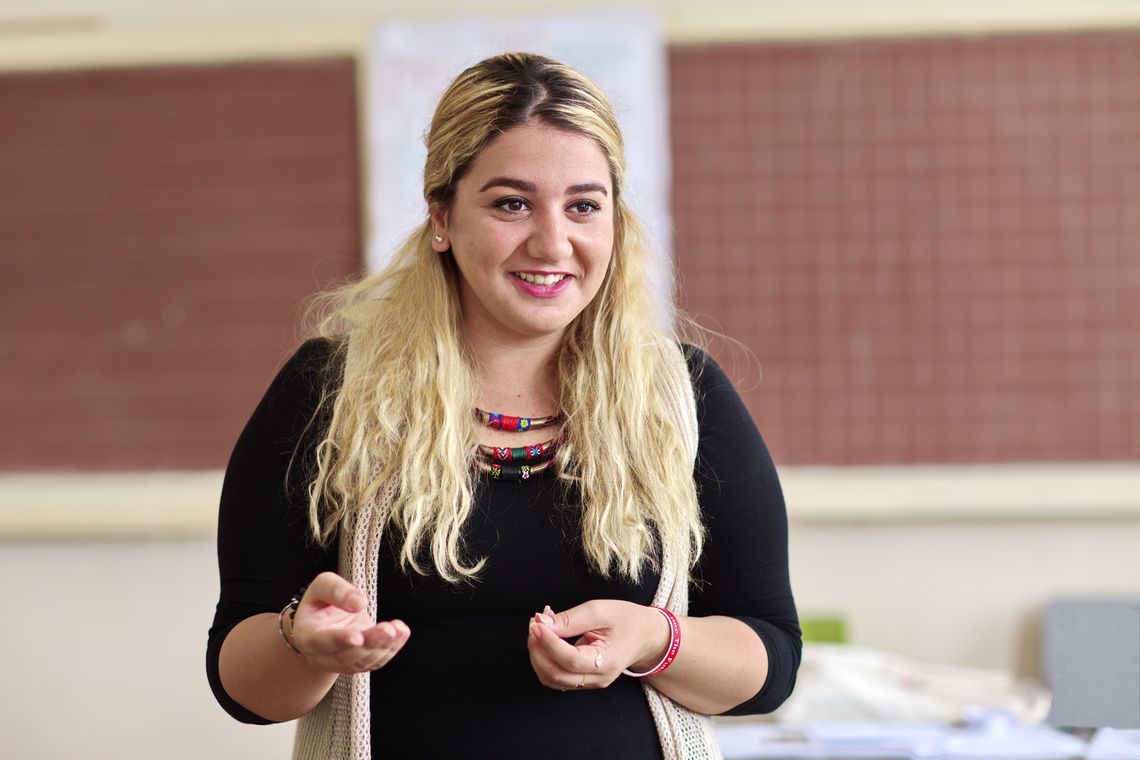

Most difficult of all will undoubtedly be leaving the children and their families, many of whom I have come to regard as my own. I continue to be a fierce opponent of indifference and believe that there still remains a lot to be done for the fearless people of this wonderful city.
Despite dyeing her hair from a bright, golden blonde back to its original black, Lebanese-born Arshaluys Amsih is still very much a source of shining light to the teachers and children of Berd, a small town on the restless Armenian-Azerbaijani border.
Arshaluys, 23, whose name translates to “dawn” in Armenian, teaches English and French, as well as harnesses leadership skills in children of different ages at Berd City College. A graduate of the Faculty of Pedagogy at the Lebanese University, Arshaluys is presently a fellow at Teach For Armenia (TFA), a non-profit organization based in Yerevan. The organization provides high-quality teaching and educational opportunities to disadvantaged children in the country’s underserved regional schools. TFA recruits and trains talented and motivated university graduates of all professions from Armenia and the Diaspora, who are then appointed to a particular school as TFA Fellows.
As you discover the story of this young woman’s journey to a secluded part of her beloved homeland, very much like the curious residents of the town, you can’t help but ask why? Why would such an energetic young woman leave the warmth and vibrancy of her hometown Beirut for the seclusion and potential danger of Berd?
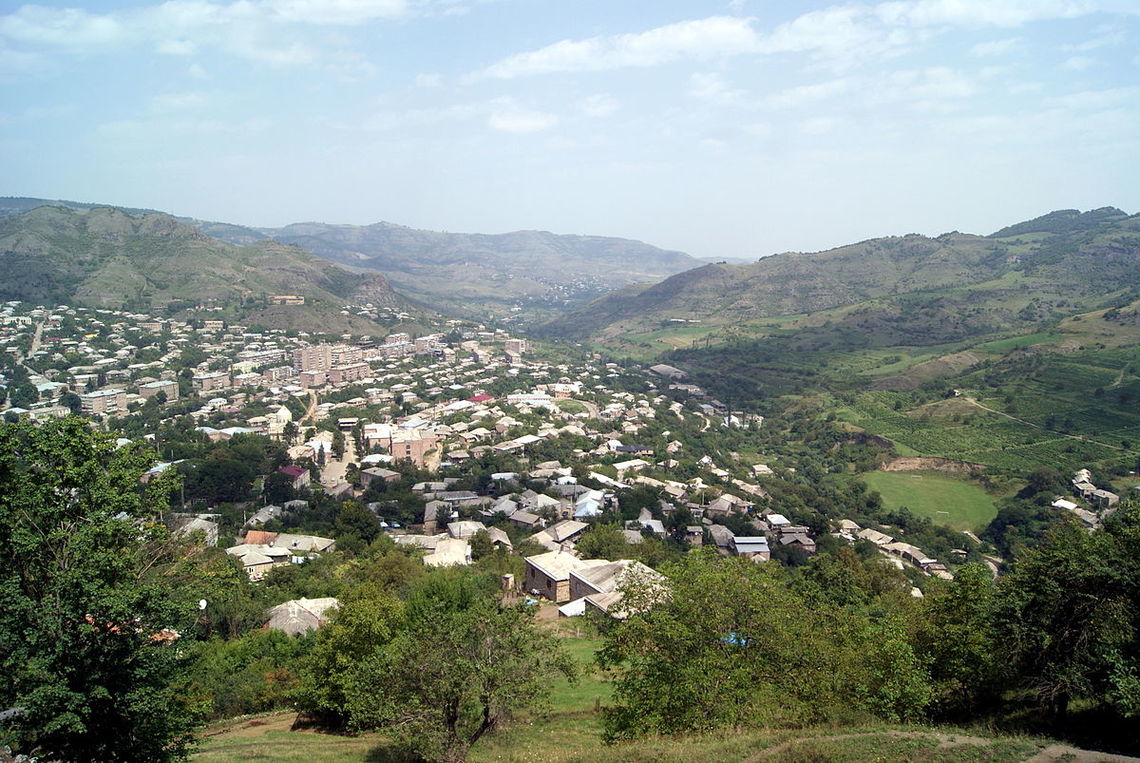

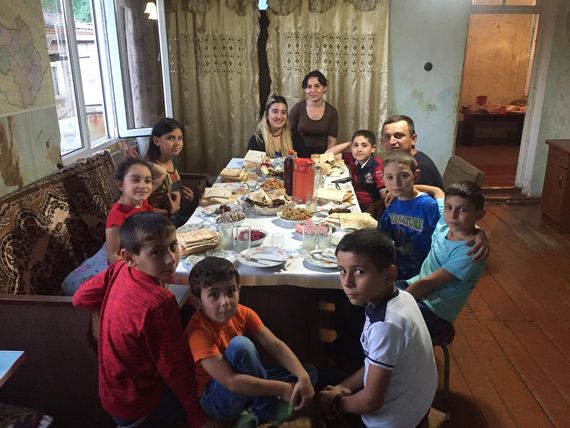

Arshaluys smiles as she admits that her colleague, Arev would always come to her rescue. She would be invited to stay the night with Arev’s family who welcomed her with open arms, including Arev’s father who claims that he and Arshaluys’ dad are actually brothers given the affection that has developed between them.
And then there’s E., a seventh grader of mine who since the very beginning took the habit of occasionally sleeping over at my apartment. We would have lengthy, heartfelt discussions and she would keep me company. I wouldn’t forgive myself if I didn’t also mention my wonderful neighbors who have been a bastion of moral and at times material support throughout my stay in Berd.
Arshaluys has come to regard all these people as her family away from family. She says that they and many others were initially surprised and then eventually grateful that she would leave the comfort and safety of her parental home to come to a potentially dangerous place to help educate their children.
I was to them a մեծ անձ – “a noble person.” Unfortunately, not everyone felt this way. Obviously, there was a group of people who approached me with a sense of apprehension because they were unfamiliar with the program and were therefore suspicious of my intentions. The fact that I was the first TFA Fellow to teach in Berd did not remedy the situation. Quite the contrary actually! Others still would nag me about my income, which was extremely unpleasant to say the least. As I was repeatedly compared to other international volunteers who had come through Berd, I soon came to understand that their steadfast interest in my salary came from a shared perception of volunteers as exploitative folk, which stood in vivid contrast with the volunteers’ perception of themselves as being driven by a self-sacrificing desire to assist the communities they were involved with.
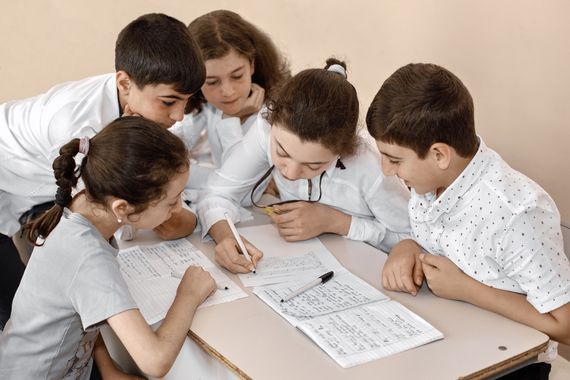

With time however they came to learn that their illusions about my high income were – well – nothing more than illusions. Not that I’m complaining by the way! These dispelled perceptions in turn eventually allowed them to accept me into their community as they realized that I was not here to exploit them. What’s more, they understood that despite my foreign looks and linguistic abilities, beneath it all I was a simple person – just like them.
Arshaluys says there are those who still those who continue to be critical, telling her that she doesn’t have the right to tell them not to leave Berd when she herself will be leaving at the end of her two-year term. These criticisms don’t bother her anymore because she believes she is having a positive impact in her homeland. Being the first TFA Fellow in Berd has been a privilege, she explains. The children she teaches on a daily basis have come to define who she is.
I was amazed to see how enthusiastic the children in Berd were about learning and how respectful they were of their teachers. A much-welcomed contrast with the increasingly disrespectful and arrogant behaviour of my pupils in Beirut unfortunately. Maybe it’s because the children in Beirut are accustomed to being privileged by the educational system since it’s not free? I couldn’t say. Regardless, as sad or unpatriotic as it may seem, I have actually come to prefer teaching Armenian rather than Lebanese children. They make me want to make an effort for them.
The students have developed a special relationship with Arshaluys over the few months she’s been in Berd. They’ve grown increasingly fond of one another, which has established a deep sense of trust both inside and outside the classroom.
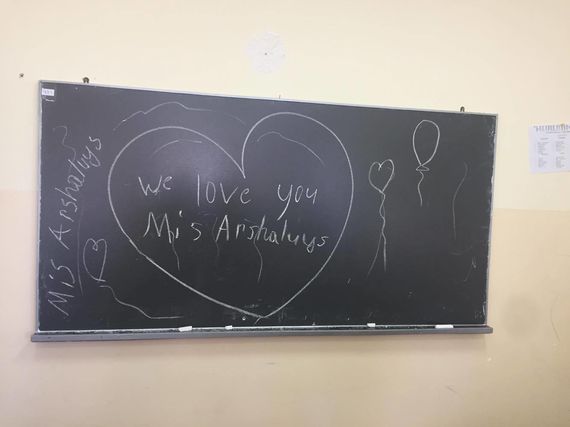

The boys I teach are generally very protective of me, especially those in fifth grade. They’re often jealous of the sixth graders because they want to spend more time with me than the rest. Meanwhile, the boys from ninth grade have taken the daily habit of accompanying me to school to ensure my safety after a minor incident involving a sheet of ice and a displaced bone.
Instead of speaking English themselves to practice their newly acquired linguistic skills, the children often prefer to ask questions of “their Miss Comrade Arshaluys” as they sometimes call her so they can hear her voice and manner of speech, which they find to be novel. Arshaluys says she doesn’t mind because it’s had the positive consequence of sparking new interest in the children for the English language.
When she took her students out to a local cafe for pizza and arcade, she saw a marked improvement with one particular student, E., a fifth grader who had lived in Russia and didn’t know a word of English. He was always distracted during class and it had become a serious challenge to get him involved. Everything changed after that trip. He became an enthusiastic and studious learner, often asking for additional homework, which he would complete with his trusty dictionary always at his side.
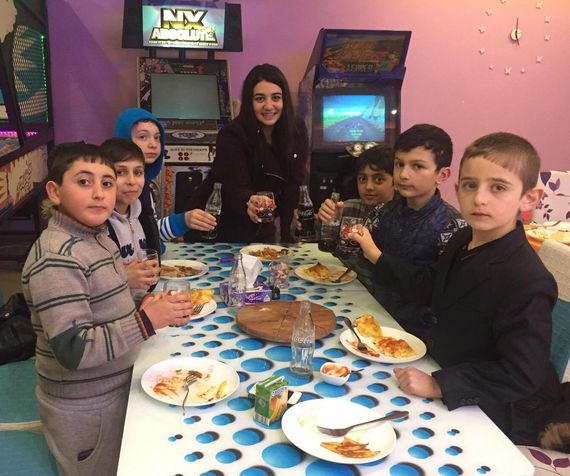

The radical transformation I witnessed in E. convinced me of the significant impact that including a personal touch in one’s approach can have in the education of children. This was made all the more easier by the open-minded approach of headmaster Manucharyan who allowed me to conduct my classes as I saw fit.
Pizza and arcades, however, are only a reprieve from the reality Arshaluys’ students face daily. The socio-economic situation in Berd and the implications of the town’s proximity to the highly volatile state border with Azerbaijan bring many problems to the surface.
Although there are always those who continue to dream of a promising future for themselves and their hometown despite recognizing the difficult path that lies ahead, I can’t ward off the impression that most of the kids don’t really look to the future. They live one day at a time – not for fear of the enemy whose sniper bullets constantly resound in the nearby valleys and occasionally visit them in their homes. Quite to the contrary, many of the children wish to learn Arabic, which they sometimes confuse with Turkish, so that they can better understand the enemy and, as they believe it, improve their chances of defeating it.
Arshaluys acknowledges that living in a state of constant fear, of constantly being subject to Azerbaijani aggression has taken its toll and shaped the worldview of the residents of her town.
Talking with my 11th graders on the topic of emigration, most of the boys tell me that they envision their futures in Russia where they’ll be able to get a decent job, which will allow them to sustain their families and hopefully come to a point of financial security where they can safely return to their hometown Berd. The girls are far more radical in their opinion on the matter – they don’t see themselves leaving Berd at all.
Arshaluys grapples with the reality that the time will come when her two-year TFA fellowship will end and she will have to say goodbye to Berd and its residents.
The truth is that I’ve grown awfully attached to these people – to the parents who recognize me in the market because of my Western Armenian accent and ask me if I’m that “Miss Arshaluys”, to the friends and colleagues who often call me over for dinner or bring food knowing that I might be too tired to cook a proper meal. Most difficult of all will undoubtedly be leaving the children and their families, many of whom I have come to regard as my own. I continue to be a fierce opponent of indifference and believe that there still remains a lot to be done for the fearless people of this wonderful city. Although it has come to my attention that apparently I shouldn’t be too worried about my future departure since the residents have made it clear that they have no intention of letting me go and are actively searching for a suitor who will insure my stay in Berd!
Although the perfect suitor has yet to be found, their intention speaks volumes.

